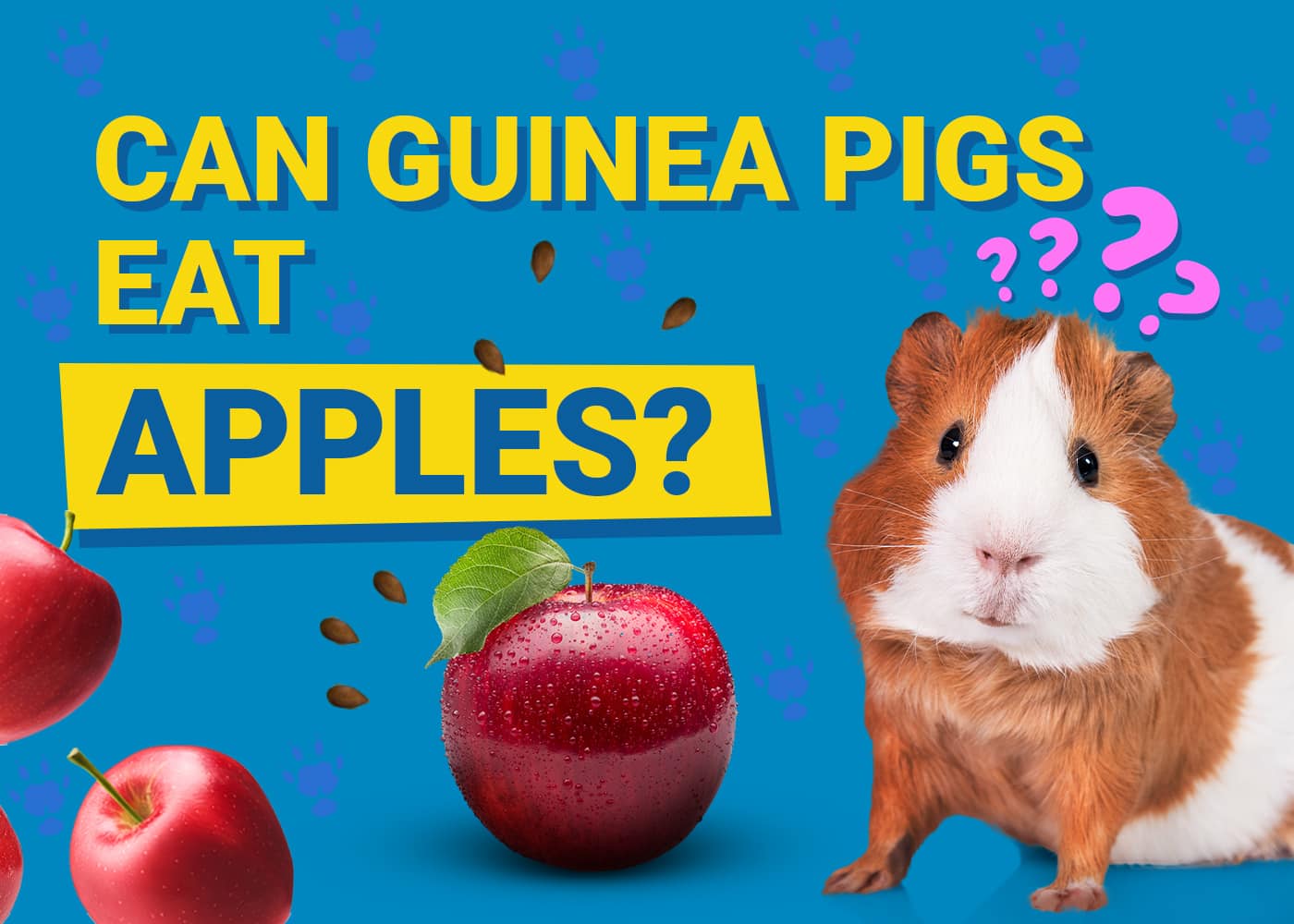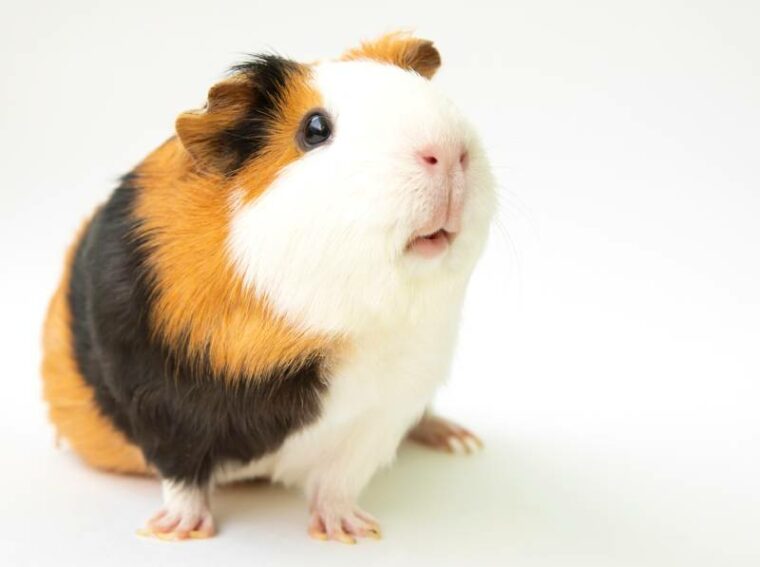
Part of being a responsible pet owner is keeping them well-fed with a nutritious, healthy diet. That means knowing exactly what an animal can and cannot eat. Though guinea pigs should eat mostly hay or grass, they also need pellets, fresh greens and vegetables, and the occasional fruit or other treat. But while there are many foods safe for these tiny animals to eat, there are just as many that are not.
What are the foods you should avoid giving to a guinea pig? Here are 15 foods to avoid; some are toxic to guinea pigs, while others are simply unhealthy for these little guys.
The 15 Foods Guinea Pigs Can’t Eat
1. Avocado

Avocados can be deadly to guinea pigs due to a compound they contain called persin. This compound is in every part of an avocado, including the leaves, fruit, stem, seeds, and skin, so no part of this food is safe for your pet. Persin is toxic to guinea pigs and can cause diarrhea and damage to the heart. This damage to the heart could quickly lead to heart failure (within 24–48 hours) if not treated immediately.
2. Anything From the Onion Family
Anything from the Allium family (or the onion family) should be avoided regarding your guinea pig. This includes onions, leeks, garlic, and chives. Onions and garlic, in particular, are most often reported for having toxic effects on guinea pigs.
Why is the Allium family so bad for your pet? All foods in this family have oxidants containing sulfur which are thought to be the cause of the toxicity. If ingested, plants from this family can lead to hemolytic anemia. The signs can take between 3 and 5 days to become apparent and include lethargy, weakness, rapid breathing and heartbeat, and collapse. If not treated as soon as possible, death can occur.
3. Chocolate
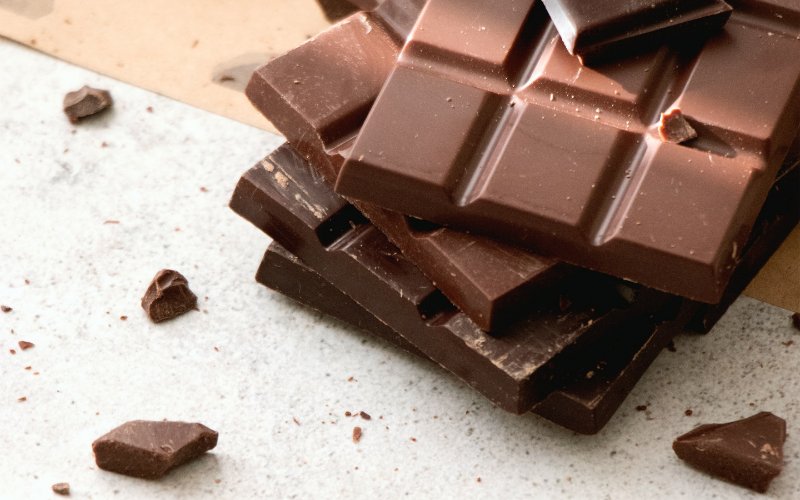
Like many mammals, such as cats and dogs, guinea pigs should also not be fed chocolate as it can be fatal to them. The reasons for its toxicity to guinea pigs are the same reasons chocolate is harmful to other pets—caffeine and theobromine. Cocoa beans contain these two compounds, which belong to a chemical group called methylxanthines. Animals like guinea pigs cannot effectively process these chemicals, which makes them more sensitive to their effects.
What are those effects? Theobromine and caffeine can affect the respiratory and nervous systems as well as the heart. When a guinea pig’s body has toxic amounts of these chemicals, it can lead to restlessness, diarrhea, tachycardia, hyperthermia, and even death if consumed in large amounts.
4. Meat
Guinea pigs are herbivores, so their bodies are not designed to digest meat. While eating meat shouldn’t be fatal to your pet, it will cause them to experience gastrointestinal upset that could be fairly severe. If your guinea pig has eaten meat, you’ll want to watch them closely to ensure they remain healthy and contact your vet with any concerns.
5. Bread, Cereals, Grains
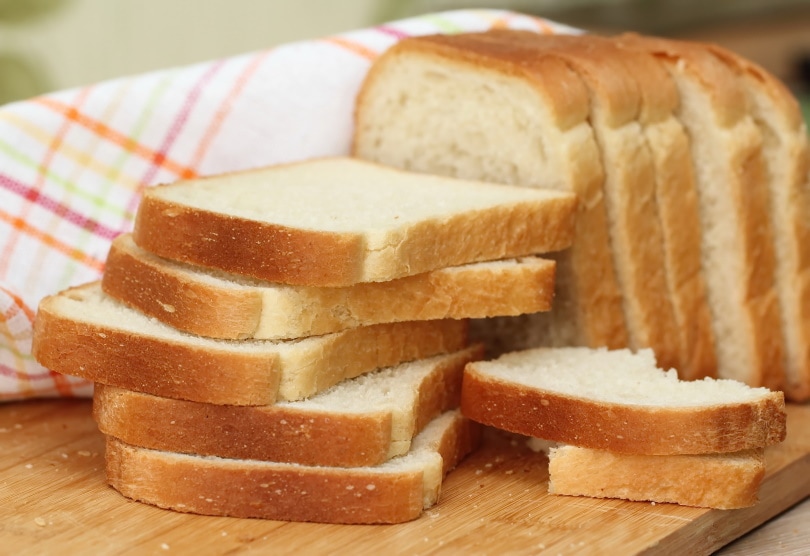
Wait, bread, cereals, and grains are toxic to guinea pigs? They are not! But just because they aren’t toxic doesn’t mean they’re healthy for your guinea pig to snack on. These foods are high in starches and sugars, neither of which are healthy for your pet and can lead to digestive upset as well as obesity if your guinea pig has them too often. These foods are highly processed, too, and offer little to no nutrition for your pet. It’s best to stick with veggies and the occasional fruit as treats!
6. Dairy
Dairy is another thing your guinea pig shouldn’t be given. Like meat, the guinea pig’s digestive system doesn’t have the needed enzymes that break down and digest dairy correctly. And dairy doesn’t just mean milk; this includes yogurt, cheese, sour cream, and all other dairy products! Feeding dairy to your pet could result in bloating or even impaction, both of which are dangerous for your little one!
7. Hot Peppers

Foods that are spicy are a no-no for your guinea pig, and hot peppers are not exempt! Hot peppers are hot because of capsaicin; this compound can excessively irritate your guinea pig’s digestive system if they eat foods containing it. So, avoid giving your pet any peppers like jalapenos or chili peppers. Bell peppers aren’t hot, though, so they’re fine for your guinea pig!
8. Kidney Beans
There are several items on this list that can lead to bloat in guinea pigs, and kidney beans are another. Beans, in general, can result in your pet becoming bloated (especially since this isn’t an uncommon occurrence in these animals). Minor bloating can be painful for your guinea pig and may require vet intervention. Significant cases of bloating can be life-threatening for your pet. Also, never give your tiny friend raw kidney beans, as these are toxic to them!
9. Mushrooms

You should avoid giving mushrooms to your guinea pig for a variety of reasons. Some mushroom species are toxic to these animals. Other mushroom species are safe for them to eat, but they don’t offer many nutrients. This means your pet could fill up on mushrooms instead of their regular diet, which could lead to nutritional deficiencies. And never give wild mushrooms to a guinea pig!
10. Nuts
Nuts may not be toxic to guinea pigs, but they’re incredibly unhealthy for them and should be avoided. Nuts have a large amount of fat in them, and if you feed nuts to your guinea pig constantly, then that fat will add up over time, leading to obesity and health issues. Your pet’s body also isn’t really designed to digest that much fat (or the salt that nuts may also contain), so eating nuts could cause them to suffer from digestive problems.
11. Tomatoes
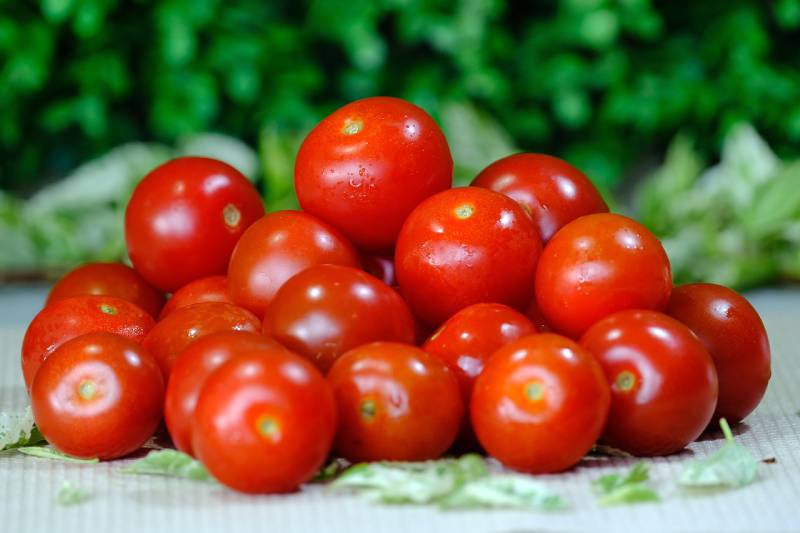
Your guinea pig can actually eat ripe tomatoes (on occasion, not all the time!). However, unripe tomatoes, tomato stems, and tomato leaves can be harmful to your pet. All of these have a glycoalkaloid poison called tomatine, which can cause digestive upset and diarrhea in guinea pigs. Even too many ripe tomatoes given to your pet can lead to sores on the mouth due to how acidic they are, and they are also high in sugar.
12. Potatoes
We mentioned before that grains, bread, and cereals are high in starches and sugars, which are bad for your guinea pig. Potatoes are the same. These foods just aren’t nutritious for your pet and can cause weight gain that leads to obesity. And raw potatoes should never be given to your guinea pig as they contain solanine, an alkaloid that can be extremely harmful. If your guinea pig consumes solanine, they could experience abdominal pain, lethargy, and digestive upset.
13. Rhubarb
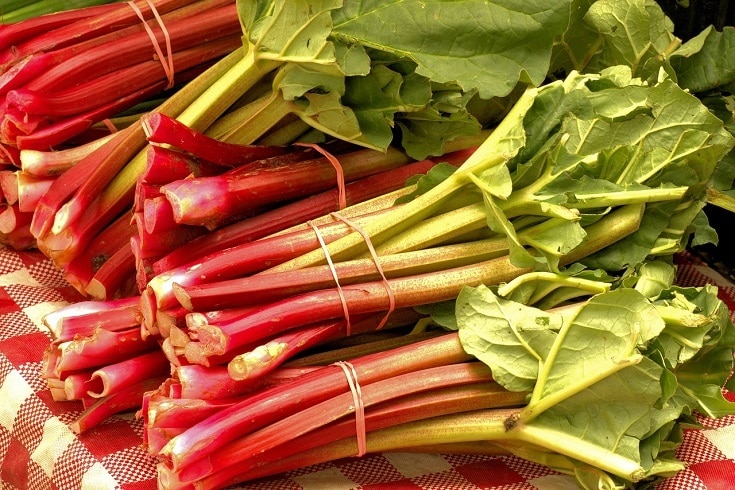
Foods that have a lot of oxalic acid can, when eaten in high quantities, interfere with calcium absorption in your guinea pig, which can lead to ill effects. For guinea pigs, this oxalic acid could bind to the calcium in their body and form bladder stones (common in these animals anyway), which are quite painful. Rhubarb, especially the leaves, is one of the foods that contains a lot of oxalic acid that you should avoid giving to your tiny friend.
14. Sunflower Seeds
Sunflower seeds are another food on this list that isn’t toxic, but they’re still not a wonderful addition to your guinea pig’s diet. Why is that? Not only are these seeds not very nutritious for your pet, but (especially with the shells) they are a potential choking hazard. Plus, these seeds contain a lot of fat, which causes weight gain when consumed by your pet regularly. The negatives far outweigh any benefits when it comes to this food!
15. Food Designed for Other Pets
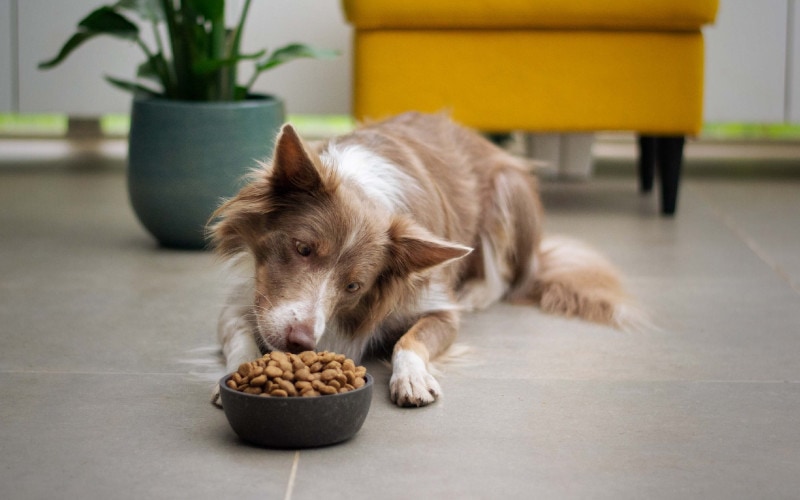
This one might seem obvious, but please do not feed your guinea pig any foods (like kibble) meant for other animals. Not only will these foods not meet your guinea pig’s nutritional requirements ( including their need for vitamin C), which could cause them to become ill, but if the food is designed for a carnivore, it will have meat in it. And, as we stated previously, meat is harmful to your guinea pig’s herbivore digestive system. Stick to pellets that are specifically made for guinea pigs instead!
Conclusion
There you have it—15 foods to avoid when feeding your guinea pig! There may be a lot of foods on this list that you shouldn’t give your pet for their own health and safety, but there are also plenty more foods that are safe (and nutritious) for your tiny friend. Always be sure to research food before giving it to your guinea pig, though, to ensure it is alright to feed it to them!
See Also:
- Can Guinea Pigs Eat Cabbage? Nutritional Facts & Info
- Can Guinea Pigs Eat Mushrooms? Vet Approved Facts &FAQ
Featured Image Credit: Arcady, Shutterstock



